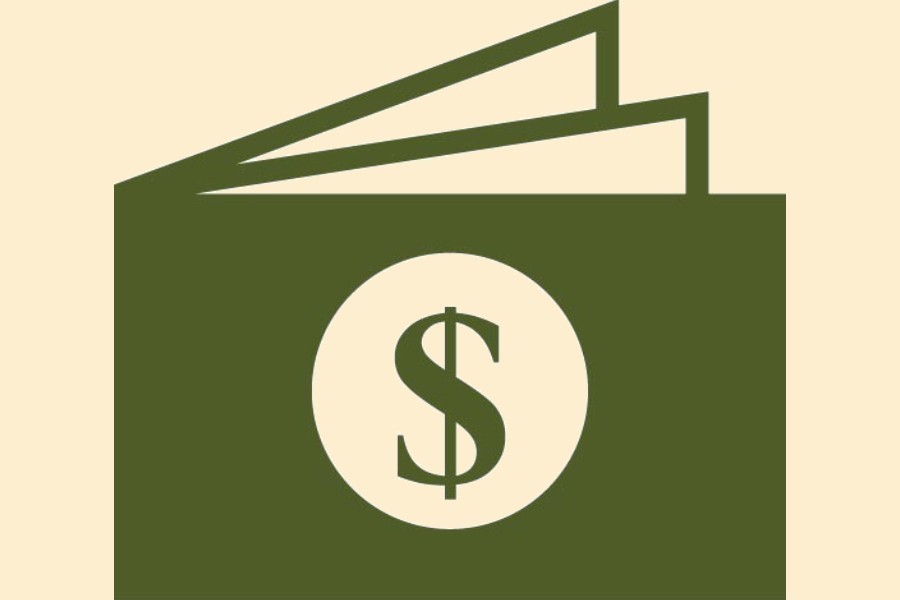
Published :
Updated :

The finance ministry has been instructed to explore how the government of Bangladesh could borrow from the country's bulging foreign currency reserves.
Foreign exchange (forex) reserves of a country mainly comprise currency and deposits held abroad, highly rated bonds, bullion, derivatives and SDRs (special drawing rights issued by the IMF). Foreign currency bank accounts - the principal component - are usually held in US dollars and/or Euro, the most traded currencies in the world. From 2018, central bankers have started to accumulate Chinese renminbi as well. These overseas deposits swell in value (in local currency) as and when the dollar or Euro appreciates.
For emerging economies like Bangladesh forex reserves work as a cushion against external economic shocks and help maintain the exchange rate within a narrow trading band. The mere fact that a country has adequate reserves tends to check currency manipulators.
Reserves are used to shore up the home currency when it dips below the accepted level although this is a losing game when the home currency is under sustained attack. Advanced economies have floating exchange rates and operate under different dynamics.
Moreover, strong economic fundamentals give confidence to advanced countries. Therefore, countries like the UK or Germany are not reliant on forex reserves to the same extent. Foreign exchange markets are highly responsive to good and bad news.
Forex reserves are used for different reasons such as financing purchases of goods and services, servicing foreign loans, repatriation of interest and profit earned on foreign direct investment (FDI) and portfolio investment by foreigners, and meeting costs of diplomatic missions abroad. Inflows take the form of exports, remittances, foreign grants and loans.
There are myriad claimants against Bangladesh's forex pool. A few examples will suffice: a UN expert maintaining $ account with HSBC, a foreign NGO maintaining a sterling account with SCB, a foreign airline maintaining $ account with a local bank, and the foreign earnings of a shipping company held at another bank. Borrowing from this pool will amount to taking somebody's money although that person cannot be identified.
Over the years, forex reserves have mutated into something much more complex than what its creators had originally had in mind. Statistics suggest that forex reserves globally are trending up. One contributing factor could be precautionary savings by countries which are tiptoeing towards loosened capital controls. Another is the high price of oil which prevailed until recently.
There is no universally accepted yardstick as to how much reserves are enough. Two rules of thumb are offered. Firstly, they should be enough to afford three months' imports. The reasoning makes sense. Secondly, they should be equal to about 20 per cent of broad money. As indicated, some money is taken away by foreigners as claims to profit or interest. Nevertheless, authorities should be able to forecast inflows and outflows of foreign exchange reasonably well.
Our reserves are an important factor in Bangladesh's sovereign stable credit rating. We know that an entity borrows money to tide over a temporary shortfall. In other words, the borrowing is like a bridge between inflow and outflow. It is therefore reasonable to assume that the entity has regular and predictable cash flow.
Now, as regards borrowing from the forex reserve, I venture the following:
(i) To delay a decision until the pandemic is over, and (ii) to carve out a sovereign fund and run it like Temasek Holdings of Singapore.
A delay will allow us the time to critically examine the complexities involved and the creation of a sovereign fund will generate income-operating and capital, if run soundly.
Raihan Amin is a former banker.


 For all latest news, follow The Financial Express Google News channel.
For all latest news, follow The Financial Express Google News channel.